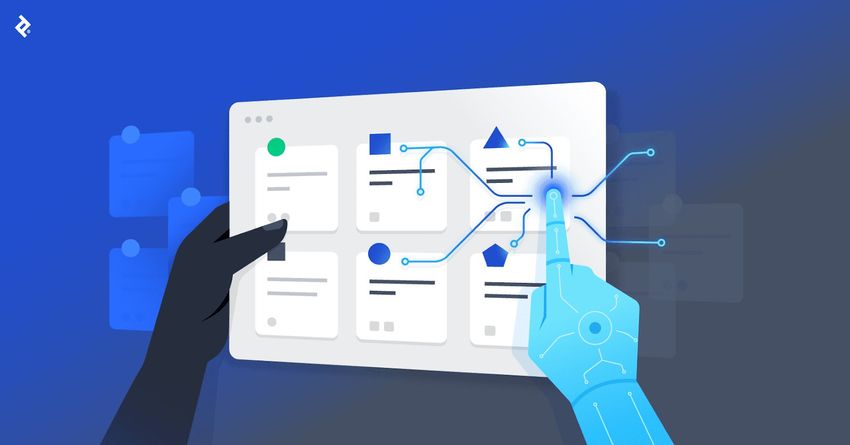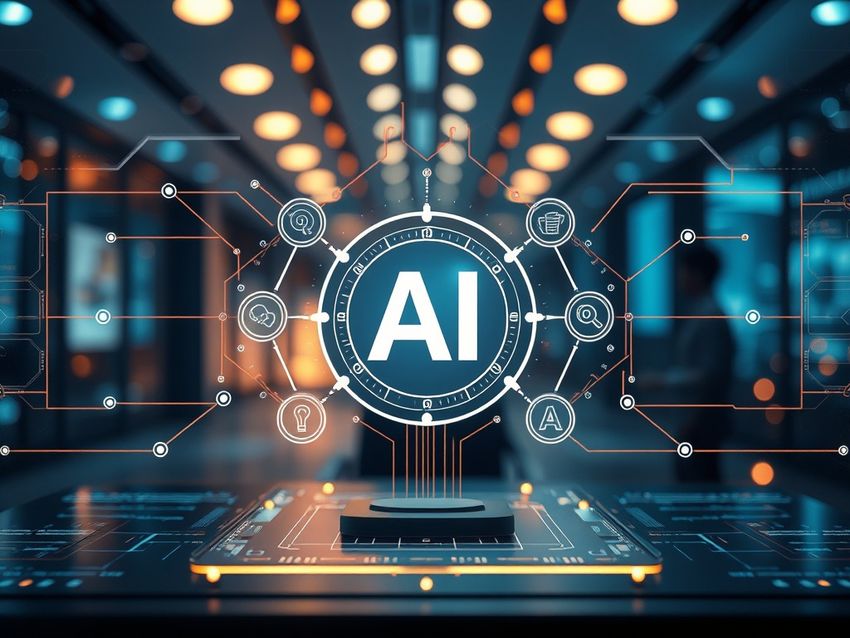Open-source artificial intelligence (AI) projects have become the foundation of innovation in machine learning and AI technologies. They allow developers, researchers, and enthusiasts to collaborate, share knowledge, and create cutting-edge tools that drive progress in the field. Contributing to these projects not only enhances your skills but also gives you an opportunity to be part of transformative technologies.

In this article, we highlight some of the best open-source AI projects that you can contribute to and make an impact in the AI community.
1. TensorFlow
Repository: GitHub – TensorFlow
Description:
TensorFlow is one of the most popular open-source AI and machine learning libraries developed by Google. It provides tools to build, train, and deploy machine learning models across a range of platforms, from desktops to mobile devices. TensorFlow supports deep learning, reinforcement learning, and even generative AI applications.
Why Contribute?
- Work on cutting-edge features like TensorFlow Lite and TensorFlow.js.
- Collaborate with Google engineers and AI researchers.
- Contribute to its documentation, tutorials, or core libraries.
2. PyTorch
Repository: GitHub – PyTorch
Description:
PyTorch, maintained by Meta (formerly Facebook), is another leading deep learning library. Known for its flexibility and ease of use, PyTorch has become a favorite among researchers and developers working on neural networks, computer vision, and natural language processing (NLP).
Why Contribute?
- Gain experience working with dynamic computation graphs.
- Help build tools for machine learning research and deployment.
- Work on projects like TorchServe and PyTorch Lightning.
3. Hugging Face Transformers
Repository: GitHub – Transformers
Description:
Hugging Face is revolutionizing NLP with its Transformers library, which provides pre-trained models for tasks like text classification, summarization, translation, and more. The library supports frameworks like PyTorch and TensorFlow.
Why Contribute?
- Collaborate on state-of-the-art NLP models such as BERT, GPT, and T5.
- Build or improve model implementations and training pipelines.
- Help enhance multilingual support and documentation.
4. OpenAI Gym
Repository: GitHub – OpenAI Gym
Description:
OpenAI Gym is a toolkit for developing and comparing reinforcement learning algorithms. It provides a wide range of environments, from classic control problems to Atari games.
Why Contribute?
- Enhance or add new environments for testing algorithms.
- Collaborate with a community passionate about reinforcement learning.
- Gain exposure to OpenAI’s broader ecosystem of tools and projects.
5. FastAI
Repository: GitHub – FastAI
Description:
FastAI simplifies deep learning by providing high-level abstractions built on PyTorch. It’s particularly well-suited for beginners and practitioners who want to quickly develop AI models.
Why Contribute?
- Work on libraries designed for practical applications.
- Contribute to the FastAI course materials, which are used by thousands of learners worldwide.
- Help improve its integration with PyTorch and other tools.
6. Keras
Repository: GitHub – Keras
Description:
Keras is an open-source deep learning API written in Python and works on top of TensorFlow. It focuses on user-friendliness, modularity, and extensibility.
Why Contribute?
- Improve ease of use for deep learning practitioners.
- Build new layers, optimizers, or loss functions.
- Contribute to improving examples and documentation.
7. scikit-learn
Repository: GitHub – scikit-learn
Description:
scikit-learn is a simple yet powerful library for machine learning in Python. It includes tools for classification, regression, clustering, and dimensionality reduction.
Why Contribute?
- Enhance or create machine learning algorithms.
- Contribute to feature requests, bug fixes, or documentation.
- Help make the library more accessible to beginners.
8. OpenCV
Repository: GitHub – OpenCV
Description:
OpenCV is an open-source computer vision and machine learning library widely used for image and video processing. From object detection to augmented reality, OpenCV provides tools for a variety of vision-based applications.
Why Contribute?
- Develop or improve image processing algorithms.
- Work on real-time computer vision applications.
- Collaborate with a large community of developers worldwide.
9. AllenNLP
Repository: GitHub – AllenNLP
Description:
AllenNLP, developed by the Allen Institute for AI, is a library for building state-of-the-art NLP models. It’s designed for researchers who want to implement and test custom models.
Why Contribute?
- Work on advanced NLP research topics like coreference resolution and semantic role labeling.
- Contribute to tutorials or improve the library’s performance.
- Engage with an academic and research-oriented community.
10. MLflow
Repository: GitHub – MLflow
Description:
MLflow is an open-source platform for managing the machine learning lifecycle, including experimentation, reproducibility, and deployment. It’s used by enterprises to streamline their ML workflows.
Why Contribute?
- Improve features for tracking and managing experiments.
- Enhance integrations with popular libraries like TensorFlow, PyTorch, and scikit-learn.
- Build deployment and serving tools for enterprise AI applications.
Getting Started with Open-Source Contributions
Here are some tips to get started:
- Choose a Project Aligned with Your Interests: Focus on projects that excite you or align with your skills.
- Start Small: Begin with simple contributions like fixing bugs, improving documentation, or addressing minor feature requests.
- Engage with the Community: Join project forums, Slack channels, or GitHub discussions to learn and collaborate.
- Follow Contribution Guidelines: Every project has its own set of rules for contributions. Make sure to adhere to them.
- Stay Consistent: Regular contributions, even small ones, build credibility and expertise over time.
Conclusion
Contributing to open-source AI projects is a rewarding experience that offers opportunities to learn, collaborate, and make an impact. Whether you’re a beginner or an experienced developer, these projects provide a platform to enhance your skills, engage with the AI community, and be part of groundbreaking innovations.
Start contributing today, and help shape the future of AI!


